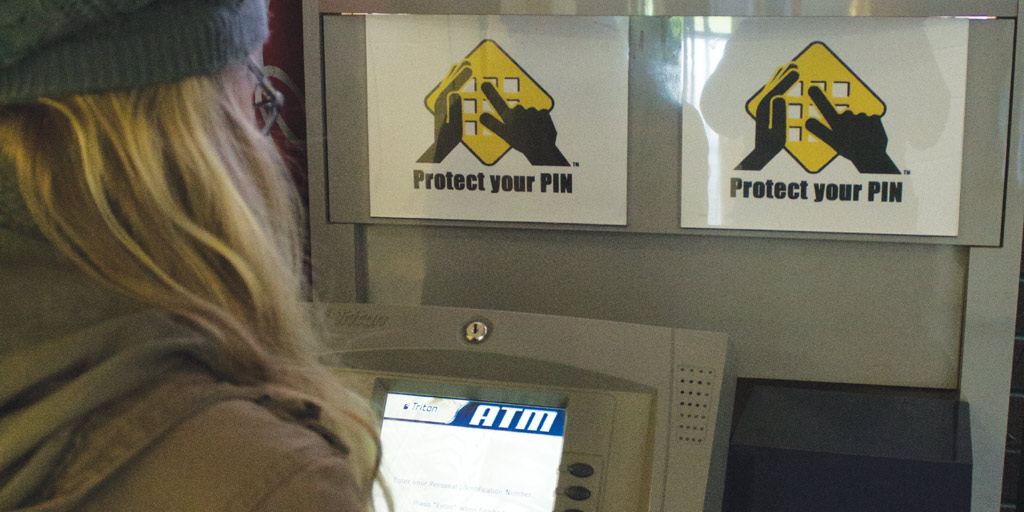Crime prevention tip of the week
 CREDIT: KERRA SEAY
CREDIT: KERRA SEAYWhen getting money out of an ATM make sure to always protect your PIN.
This week I thought we’d talk about fraud. Given the fact many students don’t have the time to head to the mall, online shopping is common; though, this makes the chance of being scammed a lot greater.
As a rule of thumb, if a deal is too good to be true, it most likely is too good to be true.
An easy way to understand fraud is that it is a theft that leaves you smiling. You think you’re getting a great deal when in reality you are being taken advantage of.
My personal experience with this wasn’t too costly; I was on holiday in England in the early ‘80s at Buckingham Palace. A helpful local who introduced himself said he would take my picture with the palace in the background and send it to me all for a reasonable fee. To be fair, it was before digital cameras and instant printing. I paid my money, but sadly never saw the supposed photo. The realization that I had been taken advantage of hit me about 20 steps after the photographer and I had parted ways. But it was too late; he was gone. For me it was a lesson well learned and not too costly.
Long story short, it can happen to anyone. I learned then at 21 that not everyone who seems helpful wants to actually help.
• Safety tips for your PIN number:
• Never give anyone your PIN number.
• Never write your PIN number down.
• Always hide and protect your PIN.
• Never share your PIN number.
If you do and your account is compromised illegally, your bank will not compensate you for your loss. The money is gone.
Your bank will never call you and if they do for some reason they will never ask you for your information over the phone. They already have your money.
Your credit card company will never call you. If there is a problem with your card or they suspect an issue they will just freeze the card secure in the knowledge that you will call them.
If you ever receive a message or email from your bank or credit card to contact them do not use the contact information they provide. For your credit card, use the number on the back of the card to call them. For your bank, the number to call them is on the back of your debit card as well. Then you can answer questions confident that you are speaking to the correct people.
Remember to keep a photocopy of all your credit and banking cards and the numbers to cancel them. If you lose your cards cancel them immediately. They can and will issue new ones.
If you have questions about this or any other crime prevention concerns please feel free to contact Steve Hartwick with Campus Security Services either by phone at 519-452-4430 ext. 4929 or email at shartwick@fanshawec.ca.














